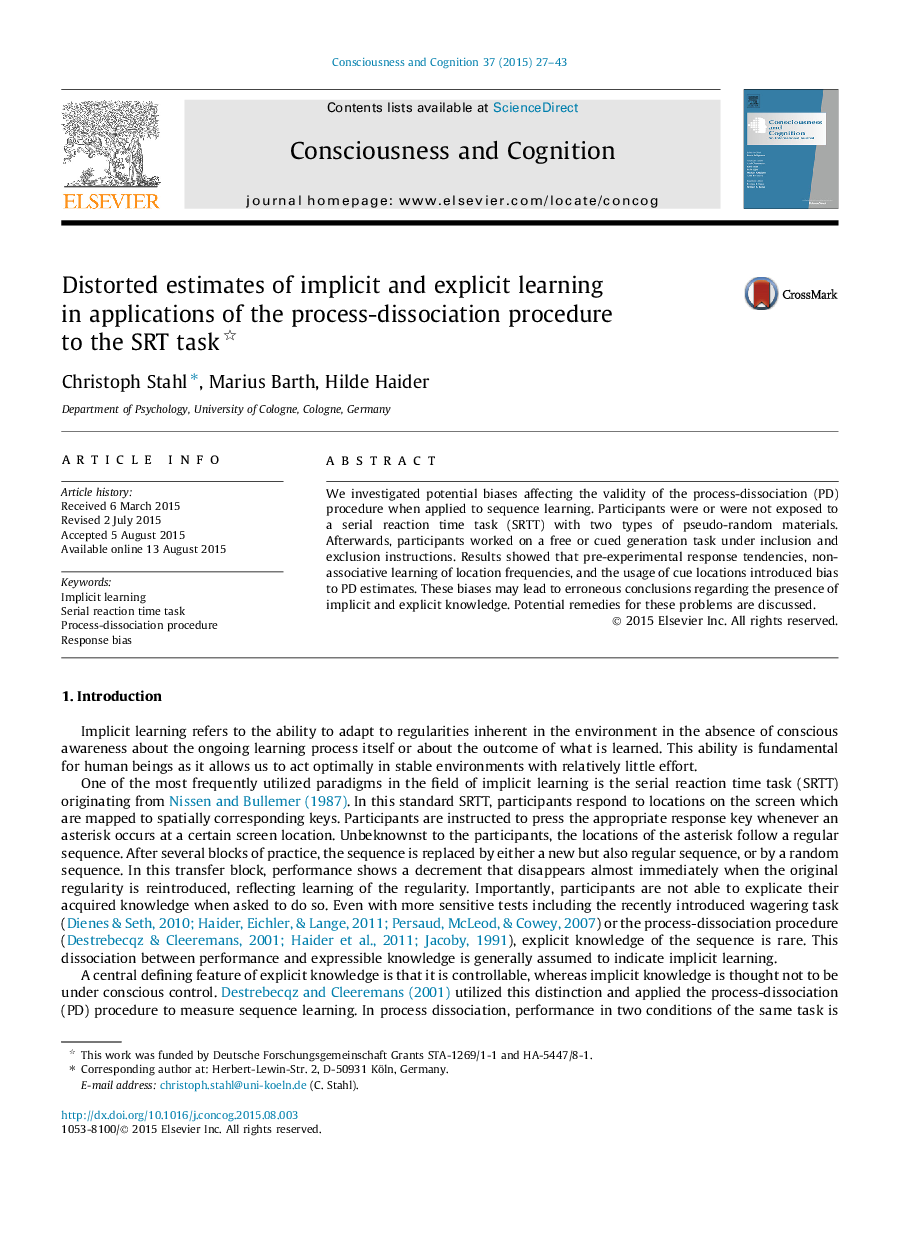| Article ID | Journal | Published Year | Pages | File Type |
|---|---|---|---|---|
| 927537 | Consciousness and Cognition | 2015 | 17 Pages |
•Response tendencies and frequency knowledge may bias process-dissociation parameters.•These biases can lead to erroneous conclusions about implicit and explicit knowledge.•To address this problem, an extended process-dissociation paradigm and model is proposed.
We investigated potential biases affecting the validity of the process-dissociation (PD) procedure when applied to sequence learning. Participants were or were not exposed to a serial reaction time task (SRTT) with two types of pseudo-random materials. Afterwards, participants worked on a free or cued generation task under inclusion and exclusion instructions. Results showed that pre-experimental response tendencies, non-associative learning of location frequencies, and the usage of cue locations introduced bias to PD estimates. These biases may lead to erroneous conclusions regarding the presence of implicit and explicit knowledge. Potential remedies for these problems are discussed.
